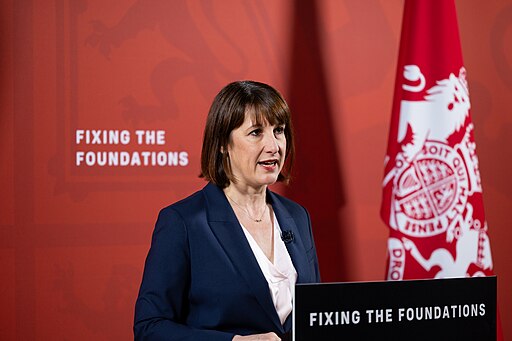Labour’s first budget may include tax hikes on inheritance, capital gains, and pensions as Chancellor Reeves addresses the £22 billion deficit
In a recent interview on the News Agents podcast, Chancellor Rachel Reeves of the Labour government indicated that tax increases will be necessary in the upcoming budget, scheduled for October 30, 2024. Reeves acknowledged the need for tax hikes to address a significant £22 billion shortfall in public finances but ruled out raising national insurance, VAT, or income tax, as per Labour’s manifesto commitments.
Reeves’ statement comes in the wake of criticisms directed at the previous Conservative administration, led by former Chancellor Jeremy Hunt, for allegedly misrepresenting the state of the public finances. Reeves accused Hunt of deliberately covering up the country’s true financial condition. Hunt has firmly denied these allegations, writing to Simon Case, the cabinet secretary, to dispute the current government’s assessment.
The £22 billion shortfall has led Reeves to scrap several Conservative policies, including a long-anticipated cap on social care costs, plans for 40 new hospital projects worth £3.7 billion, and various road initiatives. Additionally, Reeves has decided to means-test winter fuel payments, reducing the number of recipients from 11.4 million to 1.5 million, a move that has faced criticism from charities.
Notably, nearly half of the shortfall, approximately £9.4 billion, is attributed to Reeves’ decision to fully fund above-inflation public sector pay recommendations and offer junior doctors a 22.3% pay rise over two years. The Chancellor defended these decisions, arguing that public sector workers deserve fair compensation and that the cost of strike actions last year was significantly higher than the new pay settlements.
Reeves also addressed the cancellation of long-anticipated social care reforms, which she described as a “tragedy.” She emphasized the need to prioritize economic stability to avoid the kind of turmoil experienced during Liz Truss’s brief premiership. The responsibility for future social care reforms will fall to Wes Streeting, who will work on collaborating with the health and care sector to address the issue.
An HM Treasury spokesperson confirmed that further difficult decisions on tax and spending will be addressed in the upcoming budget but reiterated that the Chancellor remains committed to not increasing national insurance, VAT, or income tax.
Analysis:
Political: Reeves’ announcement signals a challenging start for Labour’s tenure, with significant tax policy shifts expected. The political landscape may become contentious as opposition parties seize on the prospect of tax hikes. The focus on rectifying financial mismanagement claims adds a layer of political drama, potentially influencing public perception and upcoming electoral dynamics.
Social: The social impact of potential tax increases and policy changes will be profound. The reduction in winter fuel payments and the scrapping of social care reforms could affect vulnerable populations, including pensioners and those in need of social care. Public reaction will likely hinge on how these changes impact daily lives and whether the perceived benefits of financial stability outweigh the immediate costs.
Racial: The racial impact of Reeves’ decisions is indirect but could intersect with broader socioeconomic factors. Tax and spending policies affect various demographic groups differently, and the reduction in benefits could disproportionately impact marginalized communities. Equity in policy implementation will be a critical consideration in the broader discussion of budgetary decisions.
Gender: The gender implications are also significant. Women, who are often primary caregivers and more reliant on social care services, may face disproportionate effects from the scrapping of social care reforms and reduced winter fuel payments. The impact on public sector pay settlements could also affect female-dominated sectors, influencing discussions about gender equity in compensation and benefits.
Economic: Economically, the potential tax increases and spending cuts represent a substantial shift in fiscal policy. The government’s approach to addressing the £22 billion shortfall will have implications for economic stability, public sector funding, and consumer spending. The balance between maintaining economic stability and addressing public needs will be a critical factor in shaping the economic landscape.
